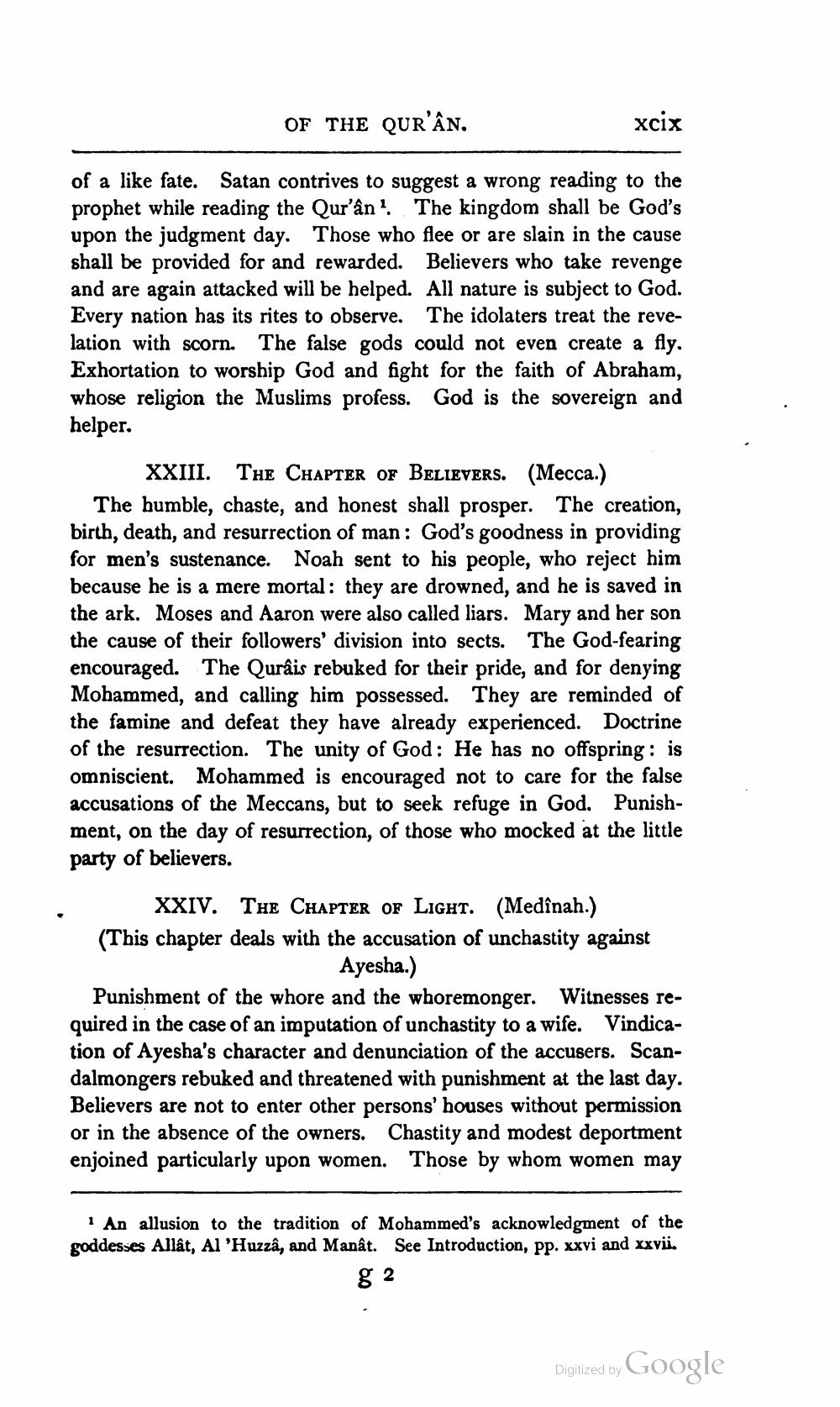________________
OF THE QUR'ÂN.
xcix
of a like fate. Satan contrives to suggest a wrong reading to the prophet while reading the Qur'ân! The kingdom shall be God's upon the judgment day. Those who flee or are slain in the cause shall be provided for and rewarded. Believers who take revenge and are again attacked will be helped. All nature is subject to God. Every nation has its rites to observe. The idolaters treat the revelation with scorn. The false gods could not even create a fly. Exhortation to worship God and fight for the faith of Abraham, whose religion the Muslims profess. God is the sovereign and helper.
XXIII. THE CHAPTER OF BELIEVERS. (Mecca.) The humble, chaste, and honest shall prosper. The creation, birth, death, and resurrection of man: God's goodness in providing for men's sustenance. Noah sent to his people, who reject him because he is a mere mortal: they are drowned, and he is saved in the ark. Moses and Aaron were also called liars. Mary and her son the cause of their followers' division into sects. The God-fearing encouraged. The Qurâis rebuked for their pride, and for denying Mohammed, and calling him possessed. They are reminded of the famine and defeat they have already experienced. Doctrine of the resurrection. The unity of God: He has no offspring : is omniscient. Mohammed is encouraged not to care for the false accusations of the Meccans, but to seek refuge in God. Punishment, on the day of resurrection, of those who mocked at the little party of believers.
XXIV. THE CHAPTER OF Light. (Medînah.) (This chapter deals with the accusation of unchastity against
Ayesha.) Punishment of the whore and the whoremonger. Witnesses required in the case of an imputation of unchastity to a wife. Vindication of Ayesha's character and denunciation of the accusers. Scandalmongers rebuked and threatened with punishment at the last day. Believers are not to enter other persons' houses without permission or in the absence of the owners. Chastity and modest deportment enjoined particularly upon women. Those by whom women may
i An allusion to the tradition of Mohammed's acknowledgment of the goddesses Allât, Al 'Huzzâ, and Manât. See Introduction, pp. xxvi and xxvii.
g 2
Digitized by Google




